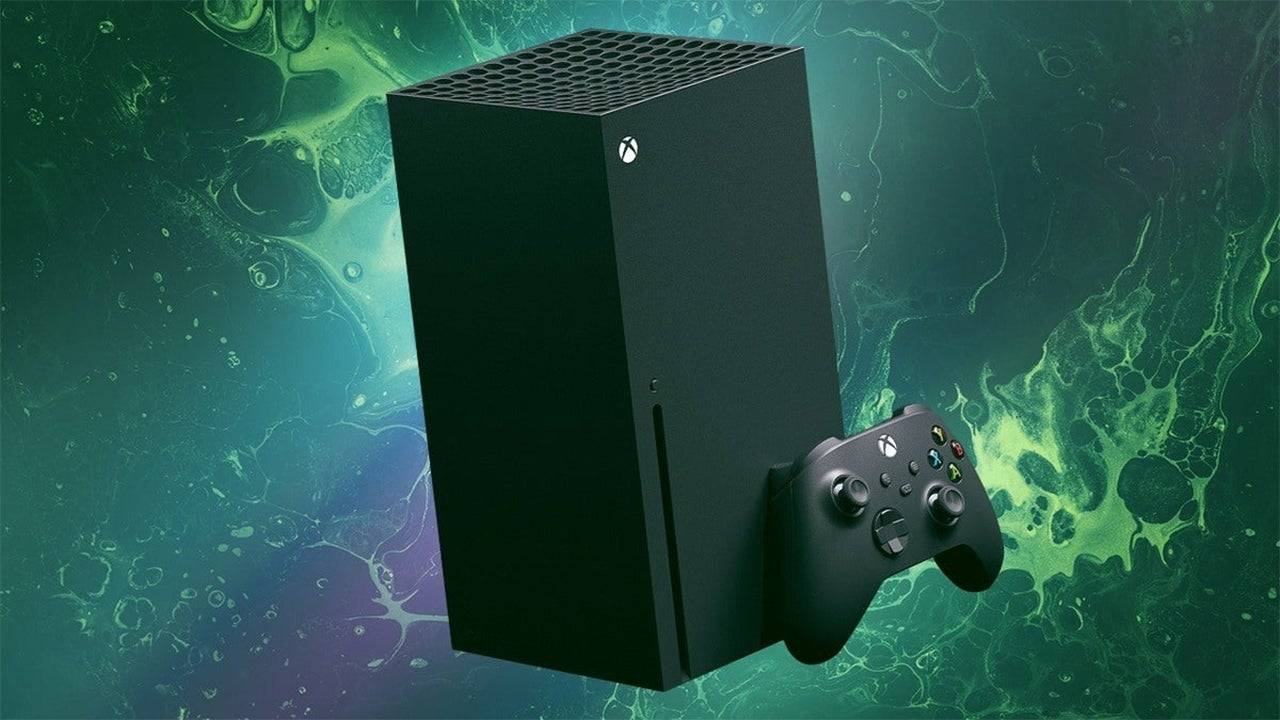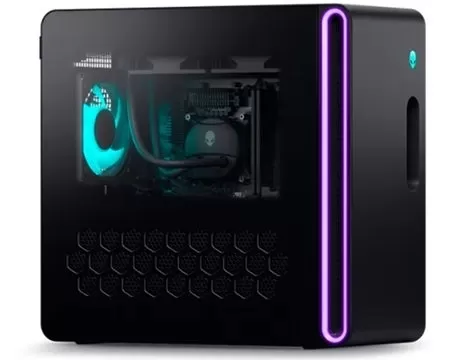The debate between PlayStation and Xbox has been a cornerstone of the video game world for decades. Whether it's a discussion sparked on Reddit, a heated TikTok video, or a passionate argument among friends, the conversation about which console reigns supreme is ever-present. While there are staunch advocates for PC gaming and those who revere Nintendo, much of the video game landscape over the last 20 years has been shaped by the rivalry between Sony and Microsoft. Yet, the question remains: Is the 'console war' still a relevant battle? The video game industry has undergone significant transformation, especially in the last year. With the rise of handheld gaming and the tech-savvy younger generations building their own gaming rigs, the gaming landscape has evolved dramatically. Has a clear winner emerged from this shifting battlefield? The answer might surprise you.
The video game industry has burgeoned into a financial powerhouse in recent years. In 2019, it boasted a global revenue of $285 billion, which soared to $475 billion by last year. This figure surpasses the combined earnings of the global movie and music industries in 2023, which totaled $308 billion and $28.6 billion, respectively. The industry shows no signs of slowing down, with projections estimating it will reach nearly $700 billion by 2029. This remarkable growth underscores the industry's evolution from its humble beginnings with games like Pong.
With such a lucrative future, it's no wonder that Hollywood actors are increasingly drawn to the gaming scene. Stars like Mads Mikkelsen, Keanu Reeves, Jon Bernthal, and Willem Dafoe have all featured in games released within the last five years. This trend reflects a significant shift in the perception of video games as a mainstream entertainment medium. Even giants like Disney are making substantial moves into gaming, with a recent $1.5 billion investment in Epic Games as part of CEO Bob Iger's strategy to establish a gaming presence. However, not all ships are sailing smoothly—Microsoft's Xbox division appears to be facing challenges.

The Xbox Series X and S were designed to be a significant upgrade over the Xbox One, promising enhanced performance and features. Despite these advancements, the Xbox One continues to outsell the Series X/S by nearly double. Mat Piscatella, a games industry expert from Circana, suggests that this current console generation may have already reached its sales peak, casting a shadow over Xbox's future. The sales figures for 2024 are even more telling: the Xbox Series X/S sold fewer than 2.5 million units throughout the entire year, while the PlayStation 5 achieved the same sales figure in the first quarter alone. Rumors of Xbox potentially closing its physical game distribution department and withdrawing from console sales in the EMEA region further signal a retreat from the traditional console war.
In fact, Microsoft has already conceded the battle. During the lengthy Activision-Blizzard acquisition process, Microsoft admitted that it never believed its Xbox division could win the console war. Faced with declining sales and a parent company acknowledging its struggles, Microsoft is shifting its focus away from console manufacturing. The emphasis is now on Xbox Game Pass, a subscription service that has become a central pillar for the company. Leaked documents reveal the hefty fees Xbox is willing to pay for AAA titles like Grand Theft Auto 5 ($12-15 million per month) and Star Wars Jedi: Survivor ($300 million), indicating a strong push towards cloud gaming. Microsoft's 'This Is An Xbox' campaign further suggests a rebranding of Xbox as an accessible service rather than a standalone console.
This strategic pivot extends beyond cloud gaming. Rumors of an Xbox handheld device, supported by leaked documents from the Activision-Blizzard acquisition, point towards a hybrid cloud gaming platform. Microsoft's plans to launch a mobile game store to rival Apple and Google, coupled with Xbox chief Phil Spencer's acknowledgment of mobile gaming's dominance, highlight the company's new direction. The goal is clear: to make Xbox a brand that gamers can enjoy anytime, anywhere.

Microsoft's shift is driven by the overwhelming popularity of mobile gaming. In 2024, of the estimated 3.3 billion video gamers worldwide, over 1.93 billion play on mobile devices. Mobile gaming has transcended casual audiences, becoming the dominant force in the gaming market across all generations, particularly among Gen Z and Gen Alpha. The total market valuation for the video game industry in 2024 was $184.3 billion, with mobile games accounting for half of that at $92.5 billion—a 2.8% increase from the previous year. In contrast, console gaming contributed $50.3 billion, a 4% drop since 2023. It's no surprise that Microsoft is keen to capitalize on this trend.
The dominance of mobile gaming is not a new phenomenon. By 2013, the Asian market for mobile gaming had already outstripped the West by significant margins, with South Korea and China leading by 759% and 280%, respectively. In 2013, mobile games like Puzzle & Dragon and Candy Crush Saga outgrossed even the juggernaut that was GTA 5 by $1.5 billion and $1.4 billion, respectively. Looking at the entire decade of the 2010s, five of the highest-grossing games were mobile titles: Crossfire, Monster Strike, Honor of Kings, Puzzle & Dragon, and Clash of Clans. These games might not be the first to come to mind, yet their impact on the gaming landscape is undeniable.
While mobile gaming takes the spotlight, PC gaming has also seen a rise in popularity. Since 2014, there has been a steady year-on-year increase of 59 million new PC players, reaching 1.86 billion in 2024. The surge in 2020, with an additional 200 million players due to the COVID-19 pandemic, underscores the growing appeal of PC gaming. Gamers are becoming more tech-savvy, learning from online communities about building powerful PCs, the latest GPUs, and overclocking techniques. Despite this growth, the global market share for PC gaming in 2024 stands at $41.5 billion, still trailing behind consoles. However, the gap between console and PC gaming has widened from $2.3 billion in 2016 to $9 billion in 2024, indicating a shift in market dynamics.

Turning our attention to PlayStation, Sony's performance in the console war has been robust. The latest quarterly earnings report shows that Sony has sold 65 million PS5 units, significantly outpacing the 29.7 million combined sales of the Xbox Series X/S. For every Xbox Series X/S sold, five PS5s find a home. Sony's Game and Network Services saw a 12.3% profit increase, buoyed by strong sales of first-party titles like Astro Bot, which sold 1.5 million copies in under two months, and Ghost of Tsushima Director’s Cut, with lifetime sales surpassing 13 million. Looking ahead, Ampere Analysis predicts that by 2029, Sony will have sold 106.9 million PS5s. In contrast, Microsoft's internal projections suggest that the Xbox Series X/S will reach between 56-59 million units by 2027. To regain competitive ground, Microsoft needs to close the 5:1 PlayStation-to-Xbox sales gap, boost unit sales significantly, and enhance the profitability of its exclusives. However, current projections do not favor such a turnaround, and with Phil Spencer's 'no red lines' approach to bringing Xbox titles to PlayStation and Switch, it's clear that PlayStation holds the crown in the console war.
Yet, the PS5's success story has its nuances. Despite being in the second half of its life cycle, 50% of PlayStation users still play on PS4s. This is partly due to the limited number of true PS5-exclusive titles. Of the top 20 best-selling games in the U.S. in 2024, only Marvel’s Spider-Man 2 at #19 is a genuine PS5 exclusive. Helldivers 2, ranked #3, was also available on PC at launch. Excluding PS4 remasters, there are only about 15 true PS5-exclusive games. This scarcity makes it challenging to justify the PS5's $500 price tag for many consumers.
The $700 PS5 Pro, launched to mixed reviews, further underscores this issue. Many tech journalists believe the upgrade came too early in the console's life cycle, especially since the advertised games were slightly upscaled versions of older titles. A poll by IGN revealed that readers felt the PS5 Pro did not offer enough value for the price. Thus, the PS5 isn't yet a must-buy console. However, the upcoming release of Grand Theft Auto 6 later this year could change that, providing a significant showcase for the PS5's capabilities.
So, is the console war over? For Microsoft, it appears there was never a belief in winning against Sony. For Sony, the PS5 has been successful but lacks the transformative impact to be considered a major leap forward. The true victors in this war seem to be those who opted out of the traditional console battle altogether. With mobile gaming companies like Tencent rumored to be expanding into traditional console gaming, the future of the industry looks increasingly mobile-centric. Take-Two Interactive reports that 10% of the world's population plays its subsidiary Zynga's games monthly, highlighting the crucial role mobile gaming plays in funding major titles like Grand Theft Auto 6. The next five years will likely see less emphasis on hardware power and more on the expansion of cloud gaming services. The console war may be over, but the mobile gaming war—and its related battles—has just begun.








